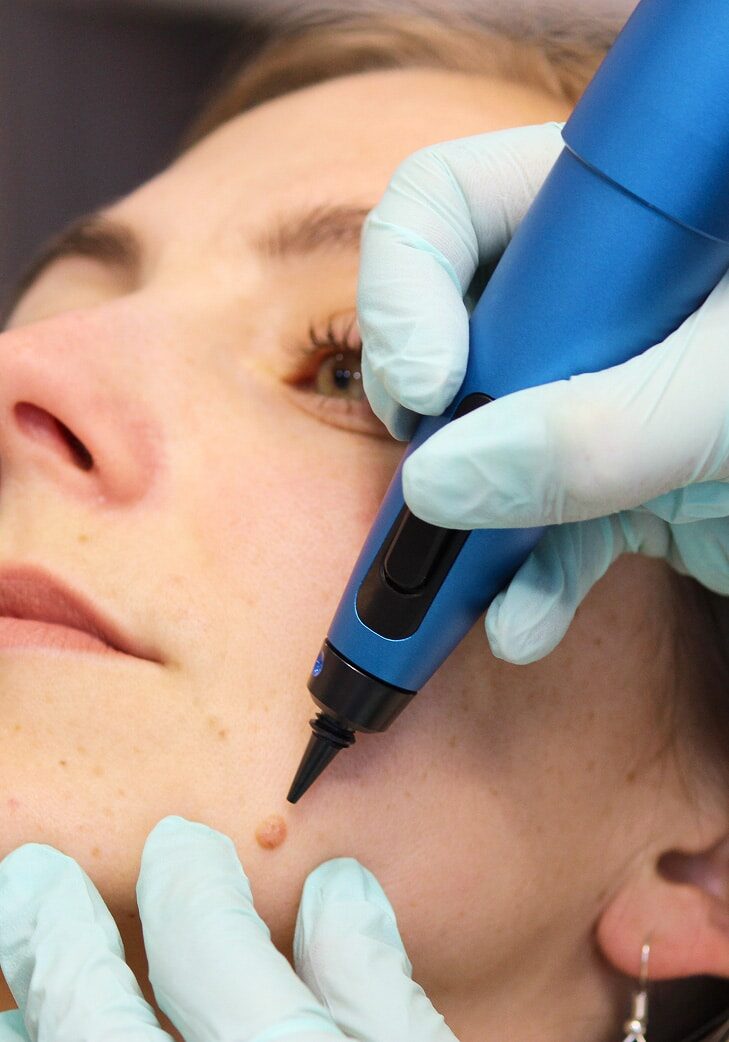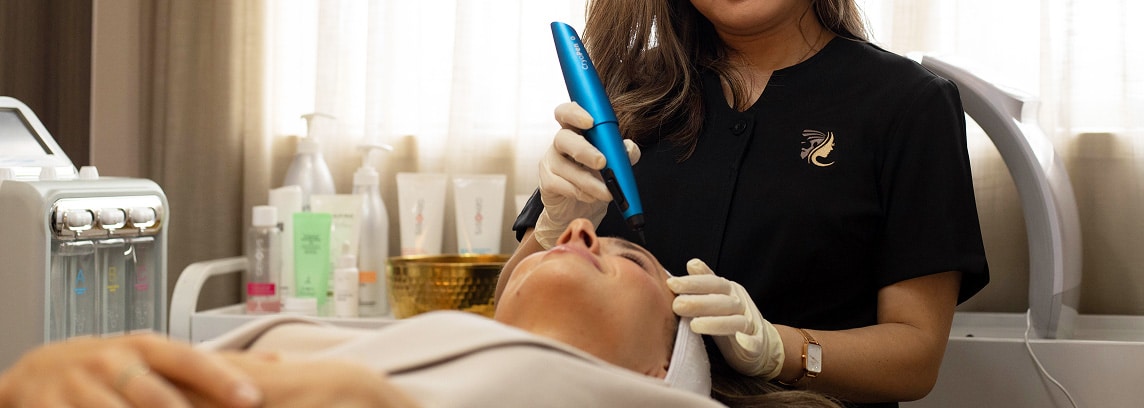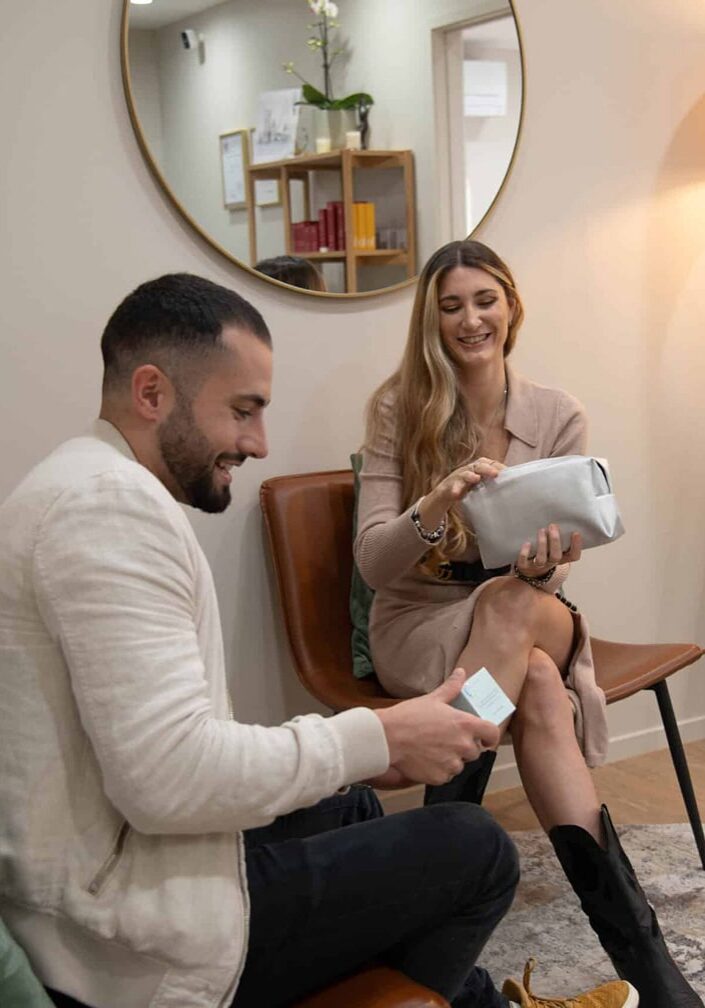A Fast & Effective Solution for Skin Tags and Moles
Say goodbye to unwanted skin growths with Cryotherapy. This minimally invasive procedure uses extreme cold, delivered via liquid nitrogen, to effectively and safely remove unwanted skin tags and moles. It's a quick, precise, and highly effective way to achieve clearer skin.

Cryotherapy offers several advantages:
Precision:
Targets only the affected areas without harming the surrounding skin
Minimal Discomfort:
Involves little to no pain during the procedure
Quick Procedure:
Each session is swift, taking only a few minutes
Effective Results:
Provides a high success rate in removing skin tags and moles
Minimal Scarring:
Leaves little to no scarring post-treatment
This treatment is ideal for:
Skin Tags:
Small, soft, skin-coloured growths
Seborrheic keratosis
Cherry angioma
Hyperplasia
Sun damage
Typical Results
Pricing & Bookings
Discover the invigorating power of our Cryotherapy service! Under expert guidance, this clinically-backed treatment exposes the body to ultra-cold temperatures, promoting wellness, recovery, and revitalisation in a safe, controlled environment.
Cryotherapy
Skin Tags, Cherry Angiomas, Sun Spots, Hyperplasia: 30 mins - $100
Minimum Appointment Fee (Includes 5 lesions) Every lesion after 5 will be a charge of $20 each.
Notes:
- Lesions not mentioned above or are abnormally large will be quoted during the consultation for agreement prior to removal.
- Some lesions may need more than one treatment, our clinician will advise during the consultation.
- Jay's Medispa reserves the right to request Doctors consent prior to treatment.
Most Commonly Asked Questions
How Long Does it Take?
Typically, the cryotherapy procedure for skin tags and moles takes just a few minutes per lesion.
What is the recommended frequency?
Usually, one session is sufficient. However, a follow-up session may be necessary for larger or more persistent lesions.
What is the recovery time?
There is minimal recovery time required. Patients can resume their normal activities immediately after the treatment.
How long will it last?
The results are typically permanent for the treated lesions. New skin tags or moles may develop in other areas and can be treated similarly.

FAQs
Let's explore some common questions about Cryotherapy treatments.
The CryoPen is a precision device that delivers a fine jet of nitrous oxide to freeze and destroy unwanted skin lesions like skin tags, warts, age spots, and cherry angiomas. It works by rapidly freezing the fluid in the cells, causing them to rupture and naturally shed over the following days.
Treated lesions usually darken, scab over, and fall off within 7 to 14 days. Some lesions may require a second treatment, especially if they are large or deep. Final skin healing can take a few weeks depending on the area treated and your skin type.
Most clients describe CryoPen treatment as a brief stinging or cold sensation. It's typically well tolerated and doesn’t require local anaesthetic. The discomfort usually lasts only a few seconds to a minute, depending on the size of the lesion.
Scarring from cryotherapy is uncommon but possible. Most treatments heal without leaving a mark, especially when the lesion is small and the aftercare instructions are followed. However, in some cases, you may notice:
-
Hypopigmentation (a light spot), particularly in medium to darker skin tones
-
Scarring, more likely if the lesion is deep, the freezing is aggressive, or the area is picked at during healing
Proper technique and post-treatment care like avoiding sun exposure and letting the skin heal naturally significantly reduce these risks.
Post-Treatment Care Guide
Congratulations on completing your cryotherapy treatment for skin tags and moles. To ensure optimal healing and results, follow our expert aftercare advice.
Keep the Area Clean:
Gently cleanse the treated area daily.
Avoid Irritation:
Refrain from scratching or picking at the treatment site.
Sun Protection:
Apply sunscreen to the area to prevent hyperpigmentation.
Moisturize:
Use a gentle moisturiser if the area feels dry.
Observe Changes:
Monitor the site for any unexpected changes or signs of infection.





